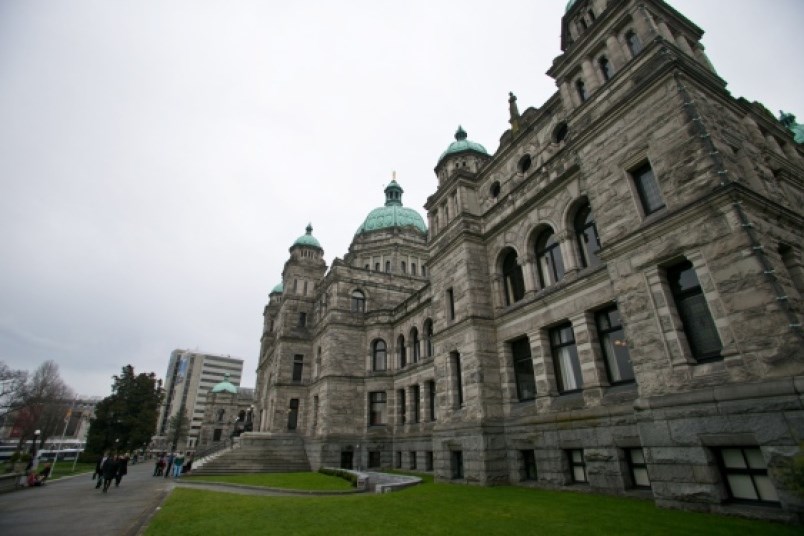As the NDP glides into its second year of government it’s worth noting the party has avoided something that has plagued it for much of its past: disunity and dissension.
Much of the credit for that has to go to party leader and Premier John Horgan, who has displayed strong leadership and has upped his game considerably. The caucus is clearly supportive of him, something that has not always been the case when it comes to NDP leaders.
But there is another reason as well: not only has the party matured, but it has left behind some internal baggage that dogged it for years.
The factions that developed within the party sometimes openly warred each other. I’m not talking about merely airing differences on policies, but more about hostilities that lasted years.
For example, I remember being asked (along with Vancouver Sun columnist Vaughn Palmer) to attend a retirement dinner for then-Attorney General Colin Gabelmann in 1996, put on by the Vancouver law courts.
When we politely inquired why such NDP luminaries as Moe Sihota and Glen Clark were not in attendance, we were told that any supporters of former leader Dave Barrett were simply not welcome. Only those who supported Tom Berger in the 1969 leadership race against Barrett had been invited, even though that contest had been almost 30 years earlier.
Talk about long-standing grudges!
But those days of bitter rivalries seem to be very distant now when you examine the current NDP caucus. For one thing, it’s a fairly young group with not a lot of deep connections to the time of any internal strife.
Horgan is the eighth NDP leader that I have dealt with in my time covering B.C. politics full-time. Five of his predecessors faced some serious problems from caucus members challenging their leadership, and it’s worth reviewing the record.
Bob Skelly was almost deposed by a caucus coup just months before the 1986 election, over concerns he could not compete with the charismatic Social Credit leader Bill Vander Zalm (ironically, Skelly’s percentage of the popular vote has not been beaten by any NDP leader since).
Mike Harcourt was never really accepted as leader by a number of members of his own cabinet (let alone the caucus) and that lack of support was why no one tried to talk him out of resigning over the Bingogate scandal.
Glen Clark was facing mounting caucus criticism even before the whole Casinogate affair began to unravel, ultimately forcing him to resign. His eventual successor, Ujjal Dosanjh, won a very divisive leadership race and he remains someone many New Democrats openly dislike (former leader Adrian Dix pointedly left Dosanjh off the list of all B.C. NDP leaders that he recited at an NDP convention).
Then there was the dramatic takedown of Carole James as leader, a bruising public spectacle that has left scars that are only now beginning to heal.
But it is hard to envision Horgan facing these kinds of internal challenges. His strong election campaign showing is the major reason the party is in power, and there are absolutely no signs of internal grumbling.
Of course, being able to form government after 16 long years in Opposition is going to put a lot of smiles on NDP faces. But bear in mind that it went through four leaders during its 10 years in power in the 1990s, so holding power does not necessarily keep a lid on internal dissent.
To be sure, Horgan has to walk a political tightrope on a number of issues (the Kinder Morgan pipeline, LNG, Site C dam, resource development in general, climate action, ridesharing, etc.) that can easily divide his party and his caucus if not handled with care.
And if this province switches to a proportional representation model of electing governments, it may be challenging for Horgan (and whoever eventually succeeds him as leader) to keep the coalition that is the NDP fully intact.
But one year in and things are looking good on the unity front. For a party with a long history of feasting on its leaders, that bodes well for its future.
Keith Baldrey is chief political reporter for Global BC. [email protected]
What are your thoughts? Send us a letter via email by clicking here or post a comment below.



